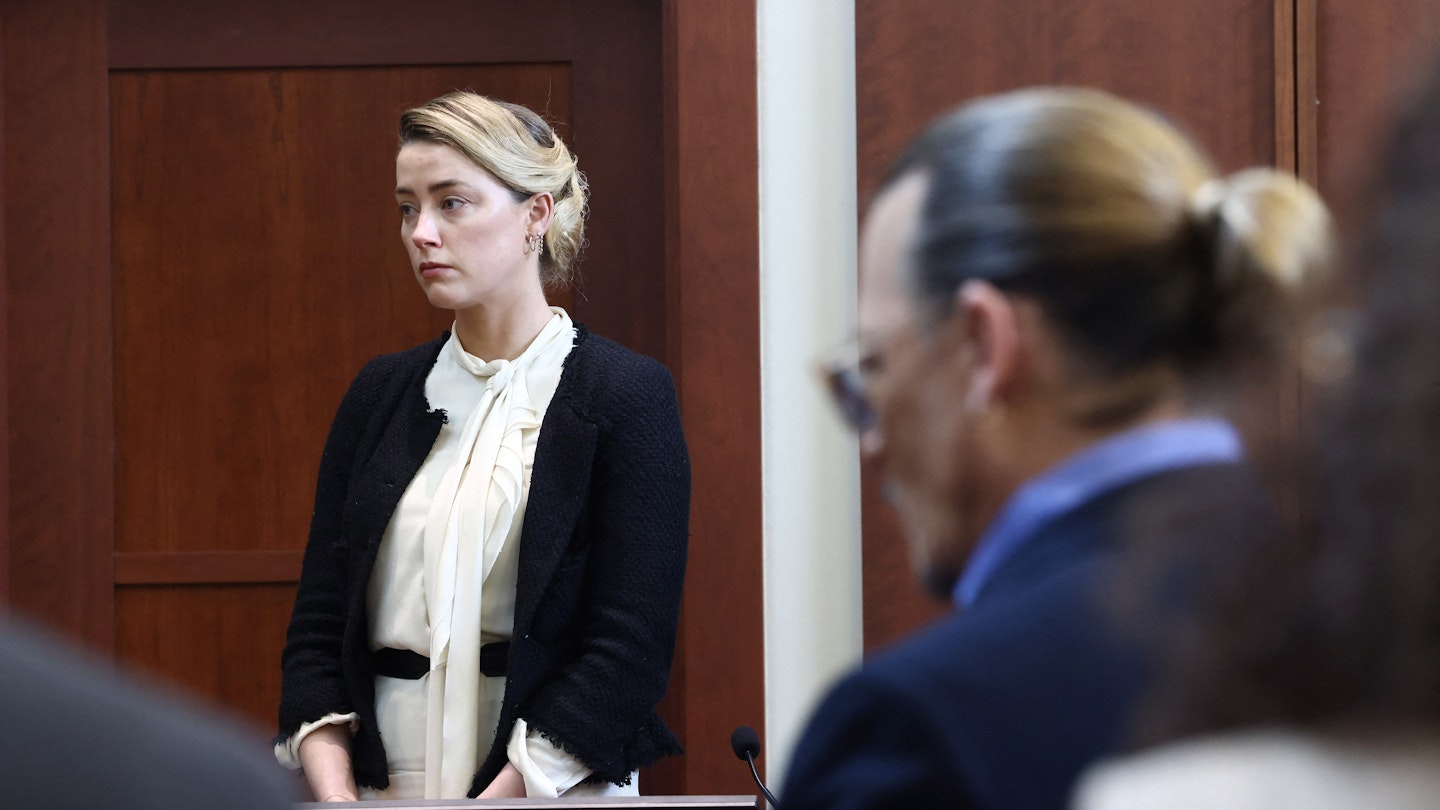The horror show that is the Johnny Depp versus Amber Heard trial continues this week, in a Virginia courtroom and on social media timelines everywhere. If you have managed to avoid the harrowing trial so far, Depp, 58, is suing ex-wife Heard, 36, for $50m (£40.4m) for defamation over an op-ed she wrote in 2018 referencing her experience of domestic abuse. Depp was not named, but he claims the article resulted in him losing his career. She is countersuing for $100m (£80.9m).
Using hashtags such as #MenToo, Depp supporters insist that this is a case of a woman abusing a man, a flipping of society’s expectations of who experiences domestic violence. But the public response to this case shows the dangerous limitations on our understanding of domestic violence.
Insisting on perfection from victims will stop so many from coming forward
TikTok and Instagram sleuths pick apart Heard’s testimony in a way they never did Depp’s. Some insist she’s too rehearsed. Others say she’s not getting her story straight. Her memories are too exact, yet not specific enough. She cries too much, but also speaks too fondly of the man she used to love. She wears too much make-up, but not enough to conceal that she’s ready to cry. She went too public with her allegations, but didn’t tell the right people at the right time. Spectators with contradictory standards are confused that she doesn’t slot into their cookie-cutter shape of a perfect victim. But in my work exposing abuses of power, I’ve heard from hundreds of abuse survivors and none are perfect.
In a society that cherry-picks the victims to whose stories we pay attention, we’ve honed in on squeaky-clean innocents. Every week in England and Wales, two women are killed by a man known to them, thousands are raped, a quarter of women are subject to domestic violence. We recognise as tragic the violent murders of entirely blameless people unknown to their killers, like Sarah Everard and Sabina Nessa. But where does that leave victims who supposedly made mistakes – such as knowing the man who hurt them? Domestic violence is not just a random monster on the prowl, it is someone attacking the person they had a relationship with: a betrayal not only of a victim’s peace, but of their love.
And if victims are to survive, they can’t be expected to do so peacefully or lovingly. Our psychological responses to threat are fight, flight, fawn, freeze or flop – and each carries a risk. Fight back and become an abuser; try to run away and anger your abuser; try to placate and your abuser might lose whatever respect they had left for you; zone out and worse might happen to you. Should a survivor somehow clamber to safety, she can expect to be met by all the contradictory standards of behaviour currently facing Heard: why didn’t you report it? Why didn’t you leave? Why didn’t you fight back? Why did you fight back? Where was your mental fortitude at a time when you say it was being pounded out of you?
And how often will a survivor say nothing at all for fear of these responses? We’re not the jury in Depp versus Heard, so it’s not for us to decide who is telling the truth. But it’s beyond all reasonable doubt that insisting on perfection from victims will stop so many from coming forward, terrified of being tripped up over their own imperfect attempts at survival.
We need to recognise as victims not only the angels who did everything right and nothing wrong, but those who behaved as humans do, with poor judgment and lack of clarity, making mishaps along the way. Because if our favourite victims are beautiful dead ones, how are we helping those actually living uglier lives?
